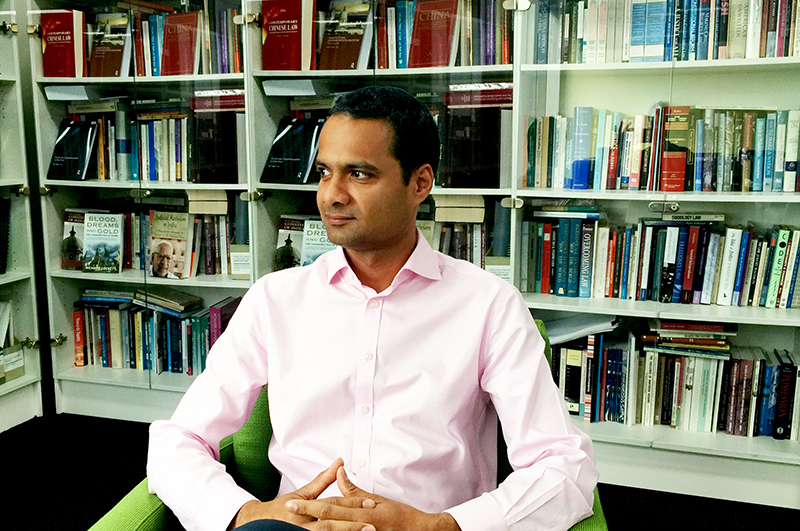
Tarun Khaitan, a Fellow and Associate Professor at Melbourne University.
Exeter really made sure that we never ever felt we did not belong…
I grew up in a small town in Eastern India, where books were scarce and the internet hadn’t quite reached us. I found out about law school serendipitously, being given an old prospectus by a cousin. My undergraduate law school in Bangalore opened up a world of possibilities for me, including the possibility of going to Oxford. Funding was key to realising that dream, and I was lucky to have received the Rhodes Scholarship. I chose Exeter on the advice of a law school senior who had studied there before me—she had loved her time there, and assured me I would too. And I did.
Exeter College provided a fun and friendly community that was essential to survive the rigours of the BCL degree. I made friends for life there, and the Rector at the time, Frances Cairncross, was a remarkable head of house. She knew many students personally and went out of her way to help as many as she could. I would often get emails from her inviting me to join her in a meeting with a visiting human rights lawyer or judge. As an international graduate student in a social context where college life is usually organised around (mostly local) undergraduates, Exeter really made sure that we never ever felt we did not belong. I have missed its genuine warmth and easy multiculturalism ever since.
After my doctorate at Exeter, I started teaching at Oxford—first at Christ Church as a career development fellow, and then as an Associate Professor at Wadham. I am currently on a four-year leave from Oxford to take up a research fellowship at Melbourne University, where I am working on the resilience of democratic constitutions in deeply divided societies.
In 2018, I was awarded the Letten Prize of the value of two million Norwegian Kroner. It is awarded to a researcher under the age of forty-five whose research makes a significant contribution to the realisation of a Sustainable Development Goal. I am using three-quarters of the prize money towards the Indian Equality Law Programme at Melbourne Law School, which is funding a doctoral student and visiting scholars working on Indian equality law. The doctoral student has started working on the conflict between religious freedom and anti-discrimination law. The first batch of six visitors, working on various dimensions of equality law, has been identified for a visit in November 2019.
